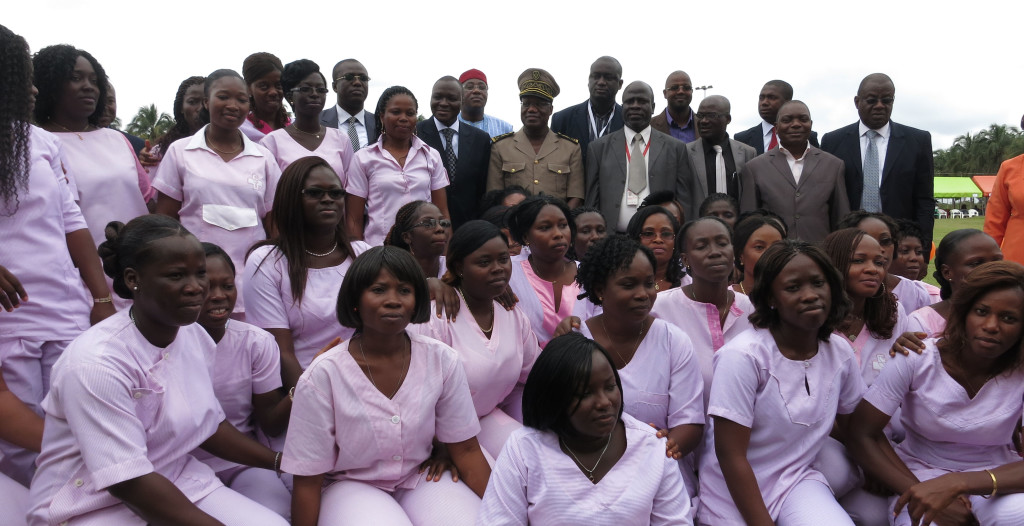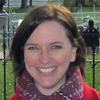Webinar | Strengthening the Health Workforce to Improve Quality and Achieve Universal Health Coverage
Categories: Announcements
 In recognition of Universal Health Coverage Day (12/12), the HFG Project hosted a webinar on strengthening human resources for health as a key step toward reaching universal health coverage (UHC). Held two days before UHC Day, the webinar drew over 90 participants from 26 countries. Participants included donors, implementing partners, and ministry of health officials, among others.
In recognition of Universal Health Coverage Day (12/12), the HFG Project hosted a webinar on strengthening human resources for health as a key step toward reaching universal health coverage (UHC). Held two days before UHC Day, the webinar drew over 90 participants from 26 countries. Participants included donors, implementing partners, and ministry of health officials, among others.
UHC means that anyone can access necessary, good quality health care without suffering financial hardship. UHC is one of the targets for goal three in the post-2015 Sustainable Development Goals (SDGs), adopted in September 2015.
A strong health workforce is crucial to achieving UHC, but poor quality pre-service training and governance often weaken the health workforce. In many countries, governments and families alike spend their limited funds on pre-service training institutions that graduate health workers with inadequate skills, which can result in poor patient care and poor health outcomes. Further, some governments do not provide strong stewardship of the health workforce, and miss critical opportunities to improve morale, retention, and skills.
Human Resources for Health (HRH) Specialists Kate Greene and Sarah Dominis, presented on three countries that are taking a systems approach to solving these two problems: Haiti, Côte d’Ivoire, and Swaziland.
- In Haiti, HFG is working with the Ministry of Health to bolster its process for accrediting nursing education institutions, known as reconnaissance. More than 40 schools have already received the new accreditation.
- The government of Côte D’Ivoire identified task-sharing between nurses/midwives and doctors for HIV care as a key strategy to improve HIV outcomes. HFG is supporting the Ministry of Health in developing policies and training programs on task-sharing to integrate into health worker training curricula.
- In Swaziland, HFG is working with the government to establish standardized hiring and compensation policies for health workers, and to strengthen human resource information systems. HFG also worked with the Swaziland Nursing Council to strengthen their capacity to regulate the nursing profession and expand nursing competencies to incorporate international best practices.
The webinar was moderated by HFG’s Health Finance and UHC Lead, Dr. Laurel Hatt. View speaker bios and presentation slides below.
Kate Greene, MBA, has more than 10 years of experience planning and implementing programs and leading policy change in HIV, AIDS, and other infectious diseases, non-communicable diseases, and human resources for health. She works with the HFG Project on regulatory change in Haiti, Cote d’Ivoire, and Swaziland to strengthen the health workforce. Kate is an Associate and Human Resources for Health Specialist for Abt Associates, Inc. Sarah Dominis, MBA, MPH, MGM, has worked in more than 12 African countries in HIV and AIDS service delivery, health systems strengthening and program implementation. Ms. Dominis specializes in strengthening policy, planning, training and management to improve the quality and quantity of human resources for health. She manages the Swaziland portfolio for the HFG Project. Sarah is an Associate and Human Resources for Health Specialist at Abt Associates, Inc.Speaker Bios:


 Dr. Laurel Hatt is a Principal Associate, International Health, at Abt Associates Inc. As Health Financing Lead for the HFG Project, Dr. Hatt provides strategic technical guidance and quality oversight on health financing activities, helping to achieve the project’s vision of mobilizing domestic resources for health, improving financial protection, and increasing efficiency in resource allocation. She has over 14 years of experience in evaluating and implementing health financing reforms that increase access to health services. Dr. Hatt also leads project efforts to monitor country progress towards UHC. She is co-author of the USAID report: Impact of Health Systems Strengthening on Health.
Dr. Laurel Hatt is a Principal Associate, International Health, at Abt Associates Inc. As Health Financing Lead for the HFG Project, Dr. Hatt provides strategic technical guidance and quality oversight on health financing activities, helping to achieve the project’s vision of mobilizing domestic resources for health, improving financial protection, and increasing efficiency in resource allocation. She has over 14 years of experience in evaluating and implementing health financing reforms that increase access to health services. Dr. Hatt also leads project efforts to monitor country progress towards UHC. She is co-author of the USAID report: Impact of Health Systems Strengthening on Health.



